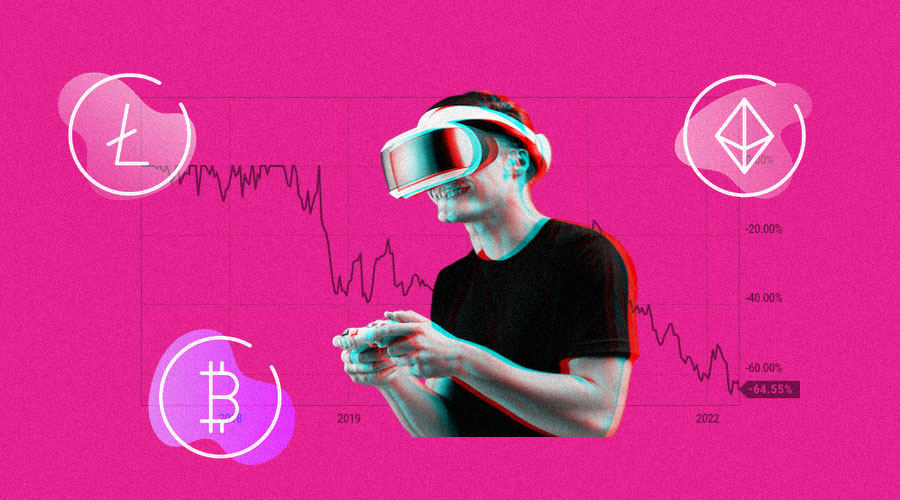Blockchain technology has gained popularity over the years, with its application in different fields such as finance, supply chain management, and healthcare. One of the emerging applications of blockchain technology is the gaming industry. Gaming is one of the most lucrative industries globally, with a market size estimated to be worth over $152 billion in 2019. Integrating blockchain technology and Non-Fungible Tokens (NFTs) in the gaming industry has opened new possibilities for game developers and players alike. In this article, we will explore the future of game development with NFTs and blockchain technology.
What are NFTs and Blockchain technology?
Blockchain technology is a decentralized digital ledger that records transactions securely and transparently. It is the underlying technology behind cryptocurrencies such as Bitcoin and Ethereum. Blockchain technology is designed to be tamper-proof and immutable, making it ideal for recording transactions.
Non-Fungible Tokens (NFTs) are digital assets representing ownership or proof of authenticity of a particular asset. NFTs are unique and cannot be replicated, making them valuable. They are stored on blockchain networks, making them secure and transparent.
How NFTs and Blockchain Technology are used in gaming
NFTs and blockchain technology have the potential to revolutionize the gaming industry. Game developers can use NFTs to create unique and valuable in-game assets that players can buy, sell, or trade. These assets include weapons, characters, and even virtual real estate. Players can also own their digital assets and transfer them across different gaming platforms, creating a new economy around in-game assets.
Blockchain technology can also create more transparent and fair gaming environments. Blockchain technology can be used to verify the authenticity of in-game assets, ensuring that they are not counterfeit. It can also be used to create provably fair gaming experiences, where a transparent and tamper-proof algorithm determines the outcome of a game.
The Future of Game Development with NFTs and Blockchain Technology
Integrating NFTs and blockchain technology in the gaming industry is still early, but the potential is enormous. Here are some of the ways that NFTs and blockchain technology can transform the gaming industry:
- Ownership of in-game assets
NFTs allow players to own their in-game assets. This means that players can buy, sell, or trade their assets without restrictions. This creates a new economy around in-game assets, with players trading assets across different gaming platforms. Game developers can also create rare and unique assets that players can collect, creating a new level of engagement with the game.
- Provably fair gaming experiences
Blockchain technology can be used to create provably fair gaming experiences. Provably fair gaming ensures that a transparent and tamper-proof algorithm determines the outcome of a game. This creates a more transparent and fair gaming environment where players can trust that the outcome of a game is not rigged.
- Decentralized gaming platforms
Blockchain technology can also be used to create decentralized gaming platforms. Any single entity does not own decentralized gaming platforms. Instead, the platform is maintained by a network of nodes. This creates a more democratic gaming environment where players have more control over the platform. Decentralized gaming platforms also have the potential to reduce costs and increase revenue for game developers.
- Cross-platform compatibility
NFTs and blockchain technology can also enable cross-platform compatibility. Players can own their in-game assets and transfer them across different gaming platforms, creating a more seamless gaming experience. This creates new possibilities for game developers, as they can create compatible assets across different gaming platforms.
- Crowdfunding game development
NFTs and blockchain technology can also be used to crowdfund game development. Crowdfunding is a popular way for game developers to raise funds for their projects. However, traditional crowdfunding platforms have limitations, such as high fees and limited investor access. NFTs and blockchain technology can create decentralized crowdfunding platforms where investors can buy tokens representing ownership in the game. This creates a more accessible and democratic funding model for game developers.
- New revenue streams
Integrating NFTs and blockchain technology in the gaming industry creates new revenue streams for game developers. Game developers can earn revenue from the sale of in-game assets and transaction fees on blockchain networks. Game developers can also create unique and rare assets for which players are willing to pay a premium, creating a new level of engagement and monetization.
Challenges and Risks
As with any emerging technology, challenges and risks are associated with integrating NFTs and blockchain technology in the gaming industry. Here are some of the challenges and risks:
- Technical challenges
The integration of NFTs and blockchain technology in gaming requires technical expertise. Game developers must have a deep understanding of blockchain technology and smart contracts to create in-game assets that are secure and tamper-proof.
- Scalability
Blockchain technology is still in its early stages, and scalability remains challenging. Current blockchain networks can only handle a limited number of transactions per second, which may not be sufficient for large-scale gaming platforms.
- Regulation
The regulatory environment for NFTs and blockchain technology is still evolving. Game developers must navigate the regulatory landscape to ensure their platforms comply with relevant regulations.
- Environmental concerns
The energy consumption associated with blockchain technology has been a source of concern. Mining cryptocurrencies, such as Bitcoin and Ethereum, consumes significant energy, which has environmental implications.
Conclusion
The integration of NFTs and blockchain technology in the gaming industry has the potential to transform the industry. NFTs allow players to own their in-game assets and create new revenue streams for game developers. Blockchain technology can be used to create transparent and fair gaming environments and decentralized gaming platforms. However, challenges and risks are associated with integrating NFTs and blockchain technology in gaming, such as technical challenges, scalability, and regulation. Game developers must navigate these challenges to realize the full potential of NFTs and blockchain technology in gaming.

